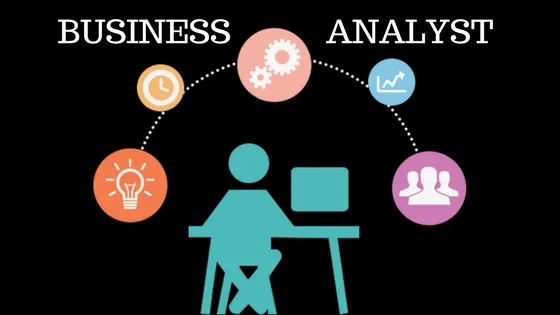
Executive Summary
A Business Analyst (BA) is a professional who acts as a bridge between business stakeholders and technical teams. They help organizations improve processes, make data-driven decisions, and implement effective solutions. Business analysts are crucial in identifying business needs, analyzing requirements, and recommending solutions that deliver value.
The role of a business analyst is diverse, spanning industries such as finance, healthcare, IT, manufacturing, and consulting. Business analysts play a key role in ensuring projects align with strategic goals and deliver measurable benefits.
This comprehensive guide explores what a business analyst does, their core responsibilities, required skills, tools, career pathways, challenges, and how they contribute to organizational success.
Table of Content
1. Understanding the Role of a Business Analyst
1.1 Definition
A business analyst is a professional who analyzes business processes, identifies needs, and proposes data-driven solutions to improve efficiency and achieve organizational objectives. They often act as a liaison between business stakeholders, project managers, and IT teams to ensure that projects are delivered effectively.
1.2 Importance of Business Analysts
Business analysts are critical because they:
- Ensure projects meet business objectives and deliver value.
- Minimize risks by identifying gaps in processes or requirements.
- Improve communication between technical and non-technical teams.
- Optimize processes and reduce operational inefficiencies.
1.3 Key Objectives
The main goals of a business analyst include:
- Identifying business needs and opportunities.
- Analyzing processes, systems, and data.
- Gathering, documenting, and validating requirements.
- Recommending solutions to improve efficiency or profitability.
- Ensuring stakeholders’ expectations are met through project execution.
2. Core Responsibilities of a Business Analyst
Business analysts are responsible for bridging the gap between business requirements and technical solutions. Their work involves the following areas:
2.1 Requirement Gathering
- Engage with stakeholders to understand business needs.
- Conduct interviews, surveys, and workshops to collect requirements.
- Identify both functional and non-functional requirements for projects.
2.2 Process Analysis
- Analyze existing business processes to identify inefficiencies or gaps.
- Use techniques like SWOT analysis, process mapping, and workflow diagrams.
- Recommend process improvements or automation opportunities.
2.3 Documentation and Reporting
- Document requirements clearly using Business Requirement Documents (BRDs), Functional Requirement Documents (FRDs), or User Stories.
- Prepare reports, dashboards, and presentations for management and stakeholders.
- Ensure documentation is accurate, comprehensive, and accessible.
2.4 Solution Assessment and Validation
- Evaluate potential solutions or systems based on business needs.
- Collaborate with developers, project managers, and QA teams to ensure proper implementation.
- Conduct testing, user acceptance testing (UAT), and validation to confirm requirements are met.
2.5 Stakeholder Management
- Communicate effectively with all stakeholders to manage expectations.
- Serve as a liaison between technical teams and business users.
- Facilitate discussions to align project goals with organizational strategy.
2.6 Data Analysis and Decision Support
- Analyze business data to provide actionable insights.
- Use metrics and KPIs to evaluate process efficiency or project impact.
- Support data-driven decision-making across departments.
Related Articles to Explore
Becoming a business analyst requires a mix of analytical, data, and management skills. Explore these related guides to strengthen your understanding:
- What Is Data Management? – Learn how managing and analyzing data is a core skill for business analysts.
- How to Become a Data Scientist – Explore another data-focused career path with overlapping analytical skills.
- What Is Project Management? – Discover how business analysts often work alongside project managers to achieve objectives.
- What Is Business Management? – Understand the broader organizational context where analysts contribute to decision-making.
- What Is Risk Management? – See how evaluating and mitigating risks is part of analytical decision-making in business environments.
3. Types of Business Analysts
Business analysts can specialize in various domains depending on industry and focus:

3.1 IT Business Analyst
- Works on software development projects and IT systems.
- Focuses on system requirements, software functionality, and user experience.
3.2 Process Business Analyst
- Concentrates on improving operational workflows and efficiency.
- Designs processes that reduce cost, time, and errors.
3.3 Data Business Analyst
- Focuses on analyzing business data and deriving insights.
- Works with BI tools and reporting systems to inform strategic decisions.
3.4 Product Business Analyst
- Works closely with product managers and development teams.
- Defines product requirements, features, and roadmaps.
3.5 Functional vs Technical BA
- Functional BA: Focuses on business processes and user needs.
- Technical BA: Bridges technical implementation with business requirements, often with coding or system knowledge.
4. Skills Required to Be a Successful Business Analyst
A combination of analytical, technical, and soft skills is essential for success.
4.1 Analytical Skills
- Critical thinking to solve complex problems.
- Ability to analyze processes, identify gaps, and propose improvements.
- Data interpretation and metrics evaluation.
4.2 Technical Skills
- Understanding of software development lifecycle (SDLC) and Agile frameworks.
- Knowledge of databases, SQL, and data visualization tools.
- Familiarity with project management and workflow tools like Jira, Trello, or Asana.
4.3 Soft Skills
- Strong communication and interpersonal skills.
- Stakeholder management and negotiation.
- Presentation skills to explain insights clearly to non-technical audiences.
4.4 Domain Knowledge
- Understanding the industry in which they operate (finance, healthcare, IT, manufacturing).
- Knowledge of regulatory requirements and compliance standards relevant to the field.
Recommended Courses to Launch Your Business Analyst Career
If you’re aiming to become a business analyst, these five courses will sharpen your skills in business intelligence, analysis foundations, and professional readiness:
- IBM Business Intelligence (BI) Analyst Professional Certificate – Build core BI skills like dashboards, reporting and data‑insights that business analysts use daily.
- Generative AI for Business Intelligence (BI) Analysts Specialization – Learn how AI is transforming the BI‑analyst role and how to work smarter with data.
- Microsoft Business Analyst Professional Certificate – A comprehensive program that covers the full analyst toolkit — from requirements to solutions.
- IBM Business Analyst Professional Certificate – Focused training on the BA lifecycle: requirements gathering, stakeholder communication, process improvement.
- Business Analyst Course – A broader course to solidify your foundation, explore real‑world BA tasks and build confidence for entry into the field.
5. Tools and Technologies for Business Analysts
Business analysts leverage various tools to gather, analyze, and communicate information:
| Category | Tools & Platforms |
|---|---|
| Requirement Management | Jira, Confluence, Trello, Azure DevOps |
| Process Modeling | Microsoft Visio, Lucidchart, Bizagi |
| Data Analysis | Excel, SQL, Tableau, Power BI |
| Communication & Collaboration | Slack, Teams, Zoom |
| Documentation | Word, Google Docs, Notion |
6. Career Path of a Business Analyst
6.1 Entry-Level Roles
- Junior Business Analyst
- Associate Business Analyst
- Data Analyst (as a starting point)
6.2 Mid-Level Roles
- Business Analyst
- IT Business Analyst
- Functional Analyst
6.3 Senior-Level Roles
- Senior Business Analyst
- Lead Business Analyst
- Business Systems Analyst
6.4 Leadership Roles
- Product Manager
- Project Manager
- Head of Business Analysis
- Chief Operating Officer (COO) or Strategy Lead
7. Educational Background and Certifications
7.1 Education
- Undergraduate Degrees: Business Administration, Finance, IT, Computer Science, or related fields.
- Advanced Degrees: MBA or specialized master’s in Business Analytics or Project Management can enhance prospects.
7.2 Certifications
Certifications validate expertise and improve employability:
- Certified Business Analysis Professional (CBAP) – Advanced BA certification.
- PMI Professional in Business Analysis (PMI-PBA) – Focused on requirements and project support.
- Entry-Level: ECBA (Entry Certificate in Business Analysis)
- Agile & Scrum Certifications: Scrum Master, PMI-ACP
- Data and BI Certifications: SQL, Tableau, Power BI, Google Data Analytics
8. Benefits of Having a Business Analyst in Organizations

- Improved project success rates by ensuring clear requirements.
- Reduced operational costs through process optimization.
- Enhanced communication between technical and business teams.
- Data-driven decisions leading to measurable business outcomes.
- Alignment of projects with organizational strategy and goals.
9. Challenges Faced by Business Analysts
- Balancing conflicting stakeholder expectations.
- Communicating complex technical solutions to non-technical audiences.
- Managing changing requirements in dynamic projects.
- Handling incomplete or inconsistent data.
- Staying updated with evolving industry trends and tools.
10. Business Analyst vs Other Roles
| Aspect | Business Analyst | Data Analyst | Project Manager | Product Manager |
|---|---|---|---|---|
| Focus | Business needs & process improvement | Data interpretation & reporting | Project delivery & planning | Product features & roadmap |
| Core Skills | Requirement gathering, process analysis | SQL, visualization, statistics | Planning, risk management | Market research, stakeholder management |
| Deliverables | BRDs, process maps, requirements | Reports, dashboards | Project plans, schedules | Product specs, backlog |
| Stakeholder Interaction | High | Medium | High | High |
11. Industries Hiring Business Analysts
Business analysts are needed across sectors:
- Finance & Banking – Risk analysis, regulatory compliance, process efficiency.
- Healthcare – Optimizing patient workflows, data management.
- IT & Software – System requirements, Agile product development.
- Manufacturing – Supply chain and production process improvement.
- Retail & E-Commerce – Customer behavior analytics, sales optimization.
- Consulting – Providing solutions for multiple clients and industries.
12. How to Become a Business Analyst: Step-by-Step
Step 1: Education
- Obtain a relevant undergraduate degree.
- Optional: Pursue advanced studies or certifications.
Step 2: Develop Skills
- Learn requirement gathering, process modeling, and data analysis.
- Gain proficiency in tools like SQL, Excel, Tableau, and Jira.
Step 3: Gain Practical Experience
- Internships in business analysis or project management.
- Work on small projects analyzing processes or reporting metrics.
Step 4: Build a Portfolio
- Document projects with requirements, process maps, and insights.
- Highlight problem-solving and impact on business outcomes.
Step 5: Apply for Jobs
- Target junior BA roles, IT BA, or data-focused roles.
- Tailor resumes to emphasize skills, certifications, and project experience.
Step 6: Continuous Learning
- Update skills with new tools, methodologies, and industry trends.
- Consider advanced certifications like CBAP or PMI-PBA.
13. Career Growth and Advancement
- Entry-level → Junior BA → Mid-level BA → Senior BA
- Lateral moves into Product Management or Project Management
- Leadership positions like Head of Business Analysis, COO, or Strategy Lead
- Specializations: IT BA, Data BA, Process BA, Agile BA
14. Tools for Effective Business Analysis
- Requirement Management: Jira, Confluence, Trello, Azure DevOps
- Process Mapping & Modeling: Visio, Lucidchart, Bizagi
- Data Analysis: Excel, SQL, Power BI, Tableau
- Collaboration & Communication: Teams, Slack, Zoom
- Documentation: Word, Google Docs, Notion
15. Conclusion
A business analyst plays a pivotal role in ensuring organizations operate efficiently and achieve their goals. They bridge the gap between business needs and technical solutions, provide insights through data analysis, and recommend solutions that optimize processes. With strong analytical, technical, and communication skills, a business analyst can build a rewarding career with opportunities across industries, from IT and finance to healthcare and manufacturing.
The combination of education, certifications, practical experience, and continuous learning enables aspiring business analysts to succeed in this dynamic and growing field.

